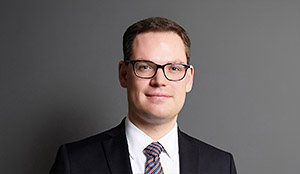AMLD5: Financial investment brokers and anti-money laundering rules
The fifth Anti-Money Laundering Directive (Directive (EU) 2018/843) came into effect on 1 January 2020. Since then many of the amendments to the German Anti-Money Laundering Act have been discussed without much attention to the consequences for financial investment brokers. These are newly defined as financial undertakings and added explicitly to the list of obligated entities under the German Anti-Money Laundering Act (Geldwäschegesetz – GwG).
The German implementation of AMLD5 brought major and minor changes at the beginning of the year. Probably the most discussed change was settled outside the GwG, but through the German Banking Act (Kreditwesengesetz - KWG): crypto currencies were newly defined as financial instruments and crypto depositaries became financial services institutions. Other changes related to the transparency register or the execution of due diligence obligations by third parties.
Under the radar flew the introduction of a definition for financial undertakings. Financial undertakings have in fact been included as obligated entities; a distinctive definition has, however, been missing in the old version of the GwG. Instead the definition codified in the German Banking Act was applied. This definition does not explicitly list, but simply sketches financial investment brokers as undertakings that "advise[ing] others on investing in financial instruments".
The amended GwG now introduces its own definition of financial undertakings. This also covers an "undertaking whose main activity consists in being [...] 4. a financial investment broker under section 34f paragraph 1 sentence 1 German Trade Regulation Act (Gewerbeordnung – GewO) and fee-based financial investment advisor (Honorar-Finanzanlagenberater) under section 34h paragraph 1 sentence 1 GewO unless the brokerage or advice relates exclusively to investments marketed or issued by obliged entities under this Act" (official translation pending).
Financial Investment Broker
A financial investment broker commercially conducts investment brokerage or investment advice according to the German Banking Act but is exempted from obtaining a BaFin-licence according to section 2 paragraph 6 sentence 1 number 8 KWG. The brokerage or advice may only relate to shares or stocks in open or closed investment assets within the meaning of the German Capital Investment Code (Kapitalanlagegesetzbuch – KAGB) or investments within the meaning of the German Investment Act (Vermögensanlagengesetz - VermAnlG).
Financial investment brokers are financial advisors in a classic sense. Crowdfunding, crowd investment and crowdlending platforms frequently operate as financial investment brokers as well (unless they also broker securities and therefore have obtained a licence as a financial services institution under the German Banking Act).
The supervision of financial investment brokers used to be delegated to the individual trade offices at the municipal or district level (for the federal states of Berlin, Brandenburg, Rhineland-Palatinate, Saarland, Saxony, Saxony-Anhalt and Thuringia) or the Chambers of Commerce and Industry (for the federal states of Baden-Württemberg, Bavaria, Bremen, Hamburg, Hesse, Mecklenburg-Western Pomerania, Lower Saxony, North Rhine-Westphalia and Schleswig-Holstein). BaFin shall assume oversight responsibility in the future.
Obligations under the GwG
Not all financial investment brokers are subject to the GwG. If the brokerage or advice is only provided in relation to investments that are marketed or issued by an already obligated entity under the GwG, there shall not be a duplication of obligations. In this case financial investment brokers are exempted from an individual obligation. This applies to classic investment advisors who market shares of investment assets for a financial investment management company. Crowdfunding platforms, however, often broker financial investments for start-ups or project companies that are not obliged entities under the GwG. This triggers the obligation to carry out AML and customer due diligence.
The identification obligations pose significant challenges for crowdfunding platforms. Their business model is based on online sales, which limits all contacts to the virtual sphere and renders personal identification impossible. An alternative must be used, most commonly the so-called Postident-process (a service offered by the German postal service Deutsche Post) or video identification.
Other requirements exist next to this identification obligation. This includes the appointment of an AML-officer and a deputy at the management level for all financial undertakings, thus financial investment brokers. This officer is responsible for compliance with anti-money laundering regulations.
Conclusion
The amendment of the GwG may have serious impact on financial investment brokers. It is thus sensible to carefully examine the possibility of the brokered products to be covered by the exemption. Is the financial investment broker an obliged entity, all onboarding processes must be checked and, if necessary, revised.




